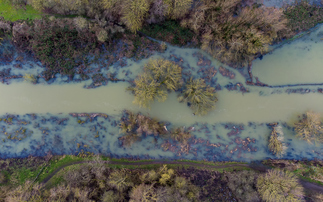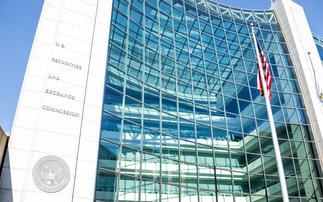Strongly-worded resolution demanding action on climate change is set to be passed today by parliamentary assembly
Up to 250 senior members of parliament from NATO states are today expected to call for leaders of members states to deliver an ambitious, legally-binding climate agreement in Paris this December.
The resolution, which is set to be approved by the NATO Parliamentary Assembly (NATO PA) today, also urges governments to officially recognise through their foreign and security policies that risks relating to climate change are "significant threat multipliers".
Philippe Vitel, who drafted the resolution as the NATO PA's special rapporteur to the Science and Technology Committee, said governments must agree to "clear, fair, and ambitious" emissions targets to help tackle climate risks.
"The security of Alliance members is at stake," he said in a statement. "Climate change is increasing the risk of violent conflict by exacerbating known sources of conflict, like poverty and economic shocks. The time to act is now."
The resolution further stresses that member governments must prioritise the achievement of their climate goals, as well as periodically review and strengthen them.
"We need legally binding rules with regular reviews to encourage states to raise their ambitions," said Lord Jopling, vice-president of the NATO PA and former UK Minister of Agriculture, Fisheries and Food in a statement. "Far too often, governments promise grand commitments, but when you examine them later, very little is done about it."
The resolution also calls on NATO to increase the frequency of its own military and political consultations on climate change, and to look at how security efforts can take related risks into account - especially with NATO partners that are particularly affected by climate change.
Rear Admiral Neil Morisetti, who has served as both the UK government Special Representative on Climate Change and NATO High Readiness Force Maritime Commander, said now is the time for alliance members to show their committment to reducing climate risks.
"Foremost, [alliance members] must ensure that their respective national security strategies reflect, along with more traditional threats, the impact of a changing climate, for failure to do so must result in an incomplete and flawed strategy," he said in a statement. "Then they must act on their analysis, including working with those NATO partners who are most vulnerable and exposed to climate change.
"At the same time, members of the alliance should work to reduce the long term risks... Failure to act will likely result in a more unstable world, one that will require NATO forces to be deployed, not just in a humanitarian role but also conflict prevention and, ultimately, conflict resolution."
The NATO PA brings together senior MPs and lawmakers from across the NATO states and provides a platform for parliamentary discussions between Allied states. It has repeatedly called for the inclusion of climate change in NATO's political agenda. However, resolutions passed by the NATO PA are non-binding for both Alliance governments and NATO.
There are now 28 NATO (North Atlantic Treaty Organisation) nations.
The news comes several months after G7 foreign ministers addressed the security threat presented by climate change in a communiqué at their meeting in Lübeck, Germany.
"Climate change is among the most serious challenges facing our world," they wrote. "It poses a threat to the environment, to global security and economic prosperity. It has the potential to reverse the progress that has been made in the past decades in tackling global poverty."
President Obama has also warned against the threat of climate change, saying in May that it could undermine global security, US national security, and the ability of the country to defend itself.
This article is part of BusinessGreen's Road to Paris Hub, hosted in association with PwC








